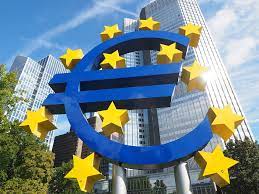
According to a survey, the demand for goods and services declined in September at the sharpest rate in almost three years as indebted consumers restrained their spending in the face of rising borrowing costs and increased prices. This suggests that the euro zone economy shrunk last quarter.
S&P Global's final Composite Purchasing Managers' Index (PMI), which is used by HCOB as a proxy for overall economic health, increased from 46.7 in August to 47.2 in September.
Although it was somewhat higher than an initial estimate of 47.1, that fell below the 50-point threshold that separates growth from contraction for a fourth consecutive month.
The poll released on Wednesday revealed that the slowdown was widespread since, like in August, output in both services and manufacturing fell.
Official data revealed that retail sales in the euro zone declined far more than anticipated in August, indicating weaker consumer demand at a time when inflation is still high.
"The drop in retail sales in August and weakness in the final PMIs for September are consistent with our view that the euro zone economy will fall into recession in the second half of 2023," said Franziska Palmas at Capital Economics.
While service sector activity in Germany increased somewhat in September, it contracted at the quickest rate in nearly three years in France due to the second-largest economy in the euro zone being burdened by declining new orders and export business, according to sister polls.
While Spain's services sector had some resiliency and expanded slightly after declining in August, Italy's services sector shrank marginally in September for a second month.
Outside of the EU, in Britain, services companies had a less severe decline than initially anticipated due to an unexpected drop in inflation and the Bank of England's decision to maintain current interest rates.
The overall demand indicator for the euro zone, the composite new business index for September, dropped from 44.6 to 44.4, marking a level not seen since November 2020, when the COVID-19 epidemic was still making its way around the world.
A PMI for the major services sector of the bloc stayed below 50 for a second month, but it did increase to 48.7 from 47.9. 48.4 was the flash estimate.
That comes after a sister poll released on Monday revealed industrial activity remained trapped in a severe and widespread decline last month as demand shrank at a rate not seen since the data was first gathered in 1997.
One encouraging development was that services companies added employees at a quicker rate in September than they did in August.
From 50.4, the employment index increased to 51.5.
"There is still a frenzy for workers in the services sector. Indeed, euro zone firms bulked up their teams at a faster pace than in August. That is a head-turner, considering new business is in the doldrums," said Cyrus de la Rubia at Hamburg Commercial Bank.
"One guess could be that with the economic waters getting choppy, people are pushing back to the job hunt, letting companies plug long-lasting staff gaps."
(Source:www.reuters.com)
S&P Global's final Composite Purchasing Managers' Index (PMI), which is used by HCOB as a proxy for overall economic health, increased from 46.7 in August to 47.2 in September.
Although it was somewhat higher than an initial estimate of 47.1, that fell below the 50-point threshold that separates growth from contraction for a fourth consecutive month.
The poll released on Wednesday revealed that the slowdown was widespread since, like in August, output in both services and manufacturing fell.
Official data revealed that retail sales in the euro zone declined far more than anticipated in August, indicating weaker consumer demand at a time when inflation is still high.
"The drop in retail sales in August and weakness in the final PMIs for September are consistent with our view that the euro zone economy will fall into recession in the second half of 2023," said Franziska Palmas at Capital Economics.
While service sector activity in Germany increased somewhat in September, it contracted at the quickest rate in nearly three years in France due to the second-largest economy in the euro zone being burdened by declining new orders and export business, according to sister polls.
While Spain's services sector had some resiliency and expanded slightly after declining in August, Italy's services sector shrank marginally in September for a second month.
Outside of the EU, in Britain, services companies had a less severe decline than initially anticipated due to an unexpected drop in inflation and the Bank of England's decision to maintain current interest rates.
The overall demand indicator for the euro zone, the composite new business index for September, dropped from 44.6 to 44.4, marking a level not seen since November 2020, when the COVID-19 epidemic was still making its way around the world.
A PMI for the major services sector of the bloc stayed below 50 for a second month, but it did increase to 48.7 from 47.9. 48.4 was the flash estimate.
That comes after a sister poll released on Monday revealed industrial activity remained trapped in a severe and widespread decline last month as demand shrank at a rate not seen since the data was first gathered in 1997.
One encouraging development was that services companies added employees at a quicker rate in September than they did in August.
From 50.4, the employment index increased to 51.5.
"There is still a frenzy for workers in the services sector. Indeed, euro zone firms bulked up their teams at a faster pace than in August. That is a head-turner, considering new business is in the doldrums," said Cyrus de la Rubia at Hamburg Commercial Bank.
"One guess could be that with the economic waters getting choppy, people are pushing back to the job hunt, letting companies plug long-lasting staff gaps."
(Source:www.reuters.com)





